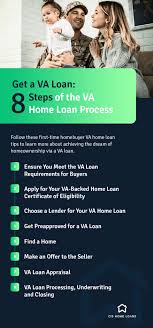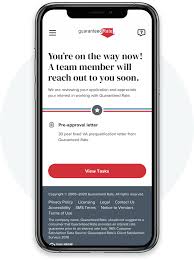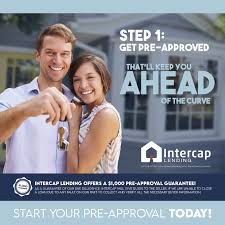Applying for a VA Home Loan
For veterans and active duty service members, the VA home loan program offers a valuable opportunity to achieve the dream of homeownership. VA loans are provided by private lenders, such as banks and mortgage companies, but are guaranteed by the U.S. Department of Veterans Affairs. This guarantee allows lenders to offer more favorable terms and conditions compared to conventional loans.
Here are the steps involved in applying for a VA home loan:
- Determine Eligibility: To qualify for a VA loan, you must meet certain service requirements set by the VA. Generally, veterans, active duty service members, National Guard members, and reservists may be eligible. Surviving spouses of service members who died in the line of duty or as a result of a service-related disability may also qualify.
- Obtain a Certificate of Eligibility (COE): Before applying for a VA loan, you will need to obtain a COE from the VA. This document verifies your eligibility for the program and is typically obtained through your lender or directly from the VA.
- Find a Lender: Research and select a lender approved by the VA to originate VA loans. Lenders may have specific requirements beyond those set by the VA, so it’s important to find one that suits your needs.
- Complete the Loan Application: The loan application process for a VA loan is similar to that of other mortgage loans. You will need to provide personal and financial information, including details about your income, assets, debts, and employment history.
- Wait for Approval: Once you submit your application, the lender will review your information and verify your eligibility for a VA loan. If approved, you will receive a Loan Estimate outlining the terms of the loan.
- Closing: If you accept the terms outlined in the Loan Estimate and all conditions are met, you can proceed to closing. At closing, you will sign final documents and officially become a homeowner with a VA-backed loan.
Applying for a VA home loan can be an excellent way for veterans and active duty service members to purchase or refinance their homes with favorable terms and conditions. If you meet the eligibility requirements set by the VA, consider exploring this option to make homeownership more accessible.
Contact your nearest Veterans Affairs office or visit their website for more information on how to apply for a VA home loan.
7 Advantages of Applying for a VA Home Loan: No Down Payment, Competitive Rates, and More
- No down payment required for most borrowers
- Competitive interest rates compared to conventional loans
- No private mortgage insurance (PMI) requirement
- Flexible credit score requirements and considerations for those with less-than-perfect credit
- Limited closing costs, which can be paid by the seller in some cases
- Assistance available for struggling borrowers through VA loan specialists
- Opportunity to refinance existing VA loans through streamlined refinancing options
7 Drawbacks to Consider Before Applying for a VA Home Loan
- Limited property eligibility
- Funding fee requirement
- Strict appraisal requirements
- Potential occupancy restrictions
- Processing time may be longer
- Additional paperwork and documentation needed
- Interest rates may be slightly higher
No down payment required for most borrowers
One significant advantage of applying for a VA home loan is that most borrowers are not required to make a down payment. This feature sets VA loans apart from many conventional mortgage options and can be especially beneficial for veterans and active duty service members who may not have substantial savings for a down payment. The ability to purchase a home without needing to provide a down payment can make homeownership more attainable and less financially burdensome, allowing eligible individuals to secure a home with minimal upfront costs.
Competitive interest rates compared to conventional loans
One significant advantage of applying for a VA home loan is the competitive interest rates offered compared to conventional loans. The U.S. Department of Veterans Affairs guarantees a portion of the loan, which reduces the risk for lenders. As a result, lenders can offer lower interest rates to eligible veterans and active duty service members, making homeownership more affordable and accessible. This benefit can result in significant savings over the life of the loan, making VA loans an attractive option for those who qualify.
No private mortgage insurance (PMI) requirement
One significant advantage of applying for a VA home loan is the absence of a private mortgage insurance (PMI) requirement. Unlike conventional loans where borrowers are typically required to pay PMI if they make a down payment of less than 20%, VA loans do not mandate this additional expense. This can result in substantial savings over time for veterans and active duty service members, making VA loans an attractive option for those looking to purchase a home without the burden of PMI costs.
Flexible credit score requirements and considerations for those with less-than-perfect credit
One significant advantage of applying for a VA home loan is the flexibility in credit score requirements and considerations for individuals with less-than-perfect credit. Unlike conventional loans that may have strict credit score thresholds, VA loans are known for being more forgiving when it comes to credit history. This makes homeownership more accessible to veterans and active duty service members who may have faced financial challenges in the past. The VA takes into account various factors beyond just credit scores, allowing individuals with imperfect credit to still qualify for a home loan and achieve their dream of owning a home.
Limited closing costs, which can be paid by the seller in some cases
One significant advantage of applying for a VA home loan is the limited closing costs associated with the loan. Unlike conventional loans, VA loans typically have lower closing costs, making homeownership more affordable for veterans and active duty service members. Additionally, in some cases, sellers may agree to pay a portion or all of the closing costs as part of the negotiation process. This can further reduce the financial burden on the buyer and make purchasing a home through a VA loan even more cost-effective and appealing.
Assistance available for struggling borrowers through VA loan specialists
One significant advantage of applying for a VA home loan is the assistance available for struggling borrowers through VA loan specialists. These specialists are dedicated to helping veterans and active duty service members facing financial difficulties by providing guidance, support, and resources to navigate challenging situations. Whether it’s financial counseling, loan modification options, or other forms of assistance, VA loan specialists work tirelessly to ensure that struggling borrowers have access to the help they need to stay in their homes and maintain financial stability. This level of personalized support sets VA home loans apart and underscores the commitment to serving those who have served our country.
Opportunity to refinance existing VA loans through streamlined refinancing options
One significant advantage of applying for a VA home loan is the opportunity to refinance existing VA loans through streamlined refinancing options. This benefit allows veterans and active duty service members to take advantage of lower interest rates or adjust the terms of their loans without the need for a full credit check or property appraisal. Streamlined refinancing options make the process quicker and more efficient, providing a convenient way for borrowers to potentially save money on their monthly mortgage payments or shorten the term of their loan.
Limited property eligibility
One potential drawback of applying for a VA home loan is the limited property eligibility criteria. While VA loans can be used to purchase a variety of property types, including single-family homes, condominiums, and multi-unit properties, there are restrictions on certain types of properties such as investment properties or vacation homes. Additionally, the property must meet the VA’s minimum property requirements to ensure it is safe and suitable for habitation. This limitation on property eligibility may restrict some borrowers’ options when it comes to choosing their desired home or investment property.
Funding fee requirement
One notable con of applying for a VA home loan is the funding fee requirement. While VA loans offer many benefits, such as no down payment and competitive interest rates, applicants are typically required to pay a funding fee at the time of closing. The funding fee helps offset the cost of the VA loan program to taxpayers. The amount of the funding fee can vary based on factors such as the type of service (first-time use or subsequent use) and whether a down payment is made. While this fee can add to the upfront costs of obtaining a VA loan, it is important to weigh this against the long-term savings and benefits that come with a VA loan.
Strict appraisal requirements
One potential drawback of applying for a VA home loan is the strict appraisal requirements. The VA has specific guidelines that must be met during the home appraisal process to ensure the property’s value aligns with the loan amount. These stringent requirements can sometimes lead to challenges, especially if the appraisal comes in lower than expected, potentially affecting the loan approval or requiring renegotiation with the seller. It’s important for applicants to be aware of these strict appraisal standards and be prepared for any potential delays or complications that may arise during the appraisal process when applying for a VA home loan.
Potential occupancy restrictions
One potential con of applying for a VA home loan is the occupancy restrictions that come with it. VA loans typically require the borrower to certify that they intend to occupy the property as their primary residence. This means that you may not be able to use a VA loan to purchase investment properties or vacation homes. If your circumstances change and you need to move out of the property, you may be required to refinance the loan or seek approval from the VA for an exception. These occupancy restrictions can limit your flexibility in how you use the property purchased with a VA loan.
Processing time may be longer
One potential downside of applying for a VA home loan is that the processing time may be longer compared to traditional mortgage loans. Due to the additional steps involved in verifying eligibility for a VA loan, such as obtaining a Certificate of Eligibility from the VA, the approval process can sometimes take more time. This extended processing period may lead to delays in securing financing for your home purchase or refinance. However, many veterans and service members find that the benefits of a VA loan outweigh the longer processing time, as they offer more favorable terms and conditions that can ultimately save money in the long run.
Additional paperwork and documentation needed
One notable con of applying for a VA home loan is the requirement for additional paperwork and documentation. While the VA loan program offers many benefits, such as no down payment and competitive interest rates, applicants may find the application process more extensive compared to conventional loans. The need to provide detailed financial information, military service records, and other documentation can be time-consuming and potentially overwhelming for some borrowers. This additional paperwork requirement can prolong the approval process and create extra hurdles for those seeking a VA home loan.
Interest rates may be slightly higher
One potential drawback of applying for a VA home loan is that interest rates may be slightly higher compared to conventional loans. While VA loans offer many benefits, such as no down payment requirement and no private mortgage insurance, the slightly higher interest rates could result in higher overall borrowing costs over the life of the loan. It’s important for prospective borrowers to carefully consider the impact of interest rates on their monthly payments and long-term financial goals when deciding whether a VA loan is the right choice for them.




